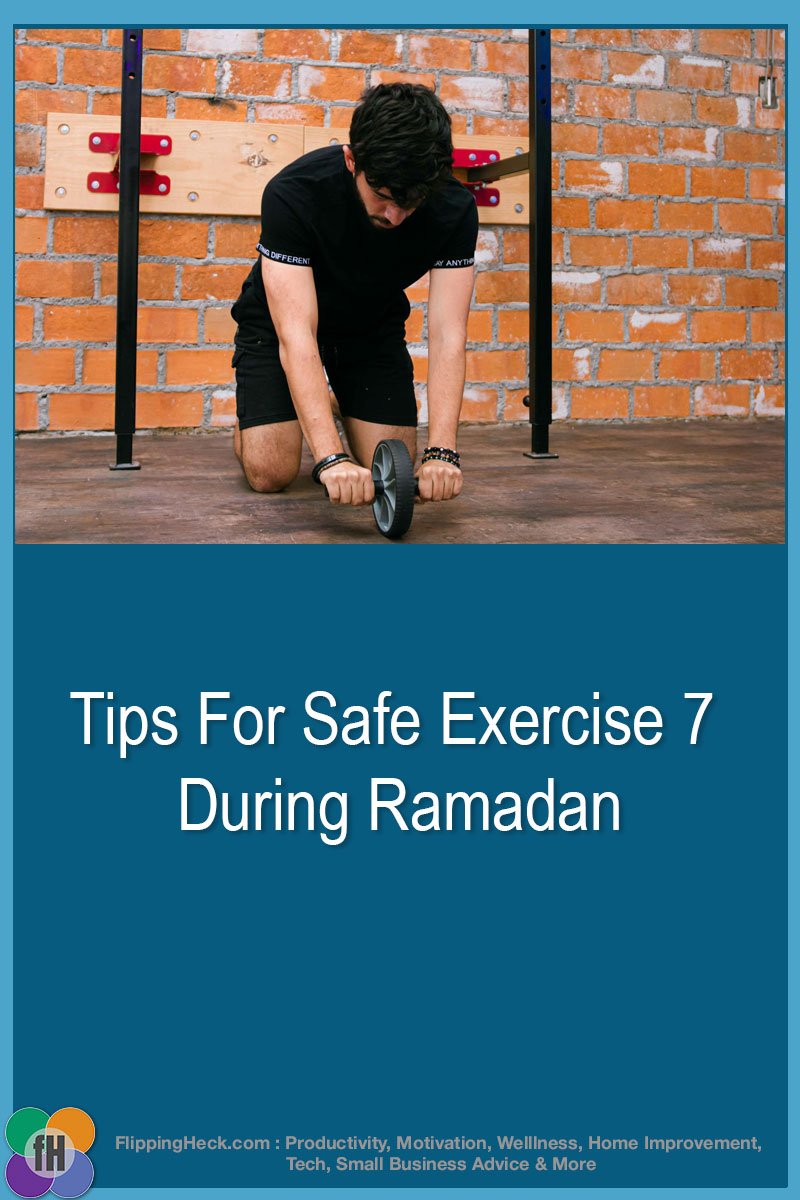7 Tips For Safe Exercise During Ramadan
Ramadan is fast approaching, which means it is time to prepare and consider our routines for the month of prayer and reflection. For Muslims taking part in Ramadan whilst also trying to stick to their fitness regimes, finding a balance can be a challenge. In this article, we will share some tips for safely exercising during this holy month, without compromising your health in doing so.

Ramadan is fast approaching, which means it is time to prepare and consider our routines for the month of prayer and reflection. For Muslims taking part in Ramadan whilst also trying to stick to their fitness regimes, finding a balance can be a challenge. Despite the physical challenges that come with fasting, many individuals still desire to maintain their exercise routines during this period. However, exercising while fasting requires careful consideration to ensure safety and effectiveness.
In this article, we will share some tips for safely exercising during this holy month, without compromising your health in doing so. Always consult with a doctor when referring to your health before making any major adjustments.
Choose the Right Time
First of all, you should opt for low to moderate-intensity exercises during the hours of not fasting. During these hours your glucose levels and blood sugar will be at their lowest, leaving you dehydrated and also lacking sufficient energy. In general, avoiding high-intensity cardiovascular exercise throughout Ramadan is recommended. This will reduce excessive levels of dehydration. For many, they have found that doing strength training just before Iftar is ideal.
This means that you can replenish within the short time frame of completing your workout, although your energy levels will still not be at their highest. Exercising right after Iftar is also preferred by some, however completing cardiovascular work right before bedtime can leave you restless due to the lack of time given to reduce your heart rate before sleep. Choose what fits your schedule most, try different time frames, and figure out which one works best for you.
Listen to Your Body
As with any type of exercise, you should always listen to what your boy is telling you. Pay close attention to any signs, such as nausea and fatigue, and give your body the break it needs when necessary.
Some days will be harder than others, and this is normal. Do not be ignorant to the signs that are telling you to take a day off, and these will be imperative whilst your health systems will be weakened during this time of fasting. Opt for relaxed physical workouts such as yoga to replenish your muscles whilst your body is adjusting to this new eating schedule.
Stay Hydrated
Staying hydrated can be the biggest obstacle to face during Ramadan. During exercise we secrete sweat, reducing the liquids in our buddy which typically would be replenished with water.
To best prepare yourself for exercise during fasting hours, you should be drinking as much water as possible. At least 2 litres is recommended, however, 3 to 4 litres may be necessary depending on your body mass and the volume of exercise you plan to do the next day.
Electrolytes are a great way to add salts and replenish nutrients in your system after a fast. They are proven to help you stay hydrated during hours of fasting also, so stock up on electrolyte drinks before Ramadan!
Opt for Shorter Sessions
Instead of extended workouts, you should consider shortening your workouts by at least 15 minutes. Shorter and more frequent workouts will reduce the chances of exhaustion whilst also making time for LISS (low-intensity steady-state cardio) exercise such as yoga or brisk walking. For example, if your pre-Ramadan workouts were an hour long, shorten this time to around 30-45 minutes a session.
Prioritise Nutritious Foods
Safe exercise is highly reliant on the food you consume during Iftar and Suhoor. Nutrient-rich foods should be a focus throughout Ramadan if you hope to feel your best during the fastest state. Break your fast with water dates, and other fruits and vegetables to increase the fluids in your body. Then begin to incorporate complex, slow-releasing energy carbs. Lean proteins and healthy fats are also important to include in your meals. The key is to eat small meals often, so do not exhaust your appetite with your meal at Iftar and spread out the typical nutrients you would eat in a day between sundown and sunrise.
You Might Also Like: Essential Foods We Should Be Eating Everyday
Modify Intensity and Duration
Be willing to adjust the intensity and duration of your workouts based on your energy levels and how your body responds to fasting. It’s okay to scale back on intensity or duration if you’re feeling particularly fatigued or to ramp up when you’re feeling energised.
Focus on Flexibility and Mobility
Emphasise exercises that promote flexibility, mobility, and relaxation, such as stretching, yoga, and deep breathing exercises. These activities can help reduce muscle tension, improve circulation, and enhance overall well-being during Ramadan.
Conclusion
Working out during Ramadan requires sufficient planning and flexibility. Understand that your capabilities may not be as consistent as they are when not in a fasted state, and be sure to listen to your body when it is time to rest.
Plan your workouts with friends who are also taking part in Ramadan to form a support system. By following these seven tips, you can maintain an active lifestyle while observing fasting traditions, promoting both physical and spiritual well-being during this holy month.
Preparation will be your best friend, so whilst you are finding the perfect abaya for Eid, you should also be planning your Ramadan workout schedule for optimal health management. Remember, the goal is not just to exercise but to do so in a way that respects your body’s needs and limitations.

